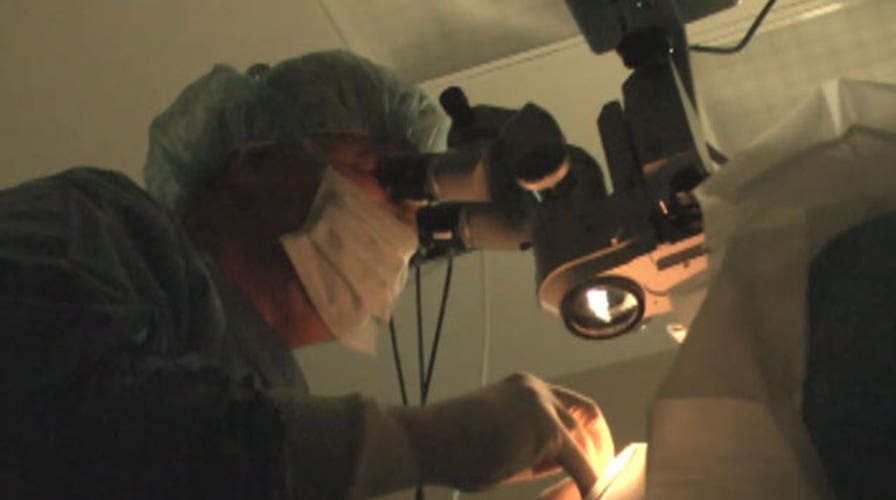It sounds like science fiction: Tiny telescopes being implanted into the eyes of humans to restore sight in those with age-related macular degeneration (AMD).
But it’s actually happening in operating rooms across the country.
AMD is the leading cause of blindness in the United States, affecting 10 million Americans over age 60. It’s a condition where the central part of the retina wears out, causing vision loss. Everyone is at risk for macular degeneration as they age, but people who have a family history or who smoke are more likely to develop it.
Although there is no cure for AMD, there is a procedure which helps end-stage disease sufferers by implanting a microscopic telescope into the eye.
"This is a telescopic implant – a very tiny telescope that is implanted in the eye when the lens is removed. This takes the place of the individual's own lens and remains in the eye permanently," Dr. Sid Mandelbaum, an ophthalmologist at East Side Eye Surgeons in New York City, told Fox News.
The procedure takes a little more than an hour, and once the patient has the implant, the telescope magnifies the images a patient sees and projects them. After surgery, patients undergo occupational therapy to help them get used to their new vision.
"The eye is kind of like the video camera that sends the image to the brain,” said Mandelbaum. “The brain is the central processor that integrates everything, and so we are retraining our brain to learn to use this vision that's a little bit different than the vision that we have used all of our lives up until this point."
The procedure does not restore patients’ sight to the level it was before they developed AMD. The eye telescope is designed to improve functional capabilities like recognizing facial detail, reading signs and allowing patients to see where they are going. However, experts warn it’s not the kind of vision that would allow a patient suffering with AMD to drive again.
To qualify for the procedure, patients need to be at least 75 years old, have end-stage macular degeneration in both eyes, and have at least one eye that has not undergone cataract surgery.
For Patricia Gajewski, who received the telescope implant in early 2013, the results have been life changing.
"It's not 100 percent, but it is better – I can tell,” Gajewski told Fox News. “I can walk into a room and recognize some faces; I am not afraid to be social. I was afraid to go out by myself. I was afraid to cross the street and everything like that, but now I can cross the street. I can go shopping by myself.”
"[My mother] can maintain herself in her house, by doing her everyday things that we take for granted, like cooking, like sewing, like cutting the grass,” said Gajewski’s daughter, Linda Tesesco. “You know, the doorbell rings and she now can see and identify who's at the door."
The telescope implant is FDA approved and is available nationwide.
For more information, visit the company’s website at CentraSight.com.

